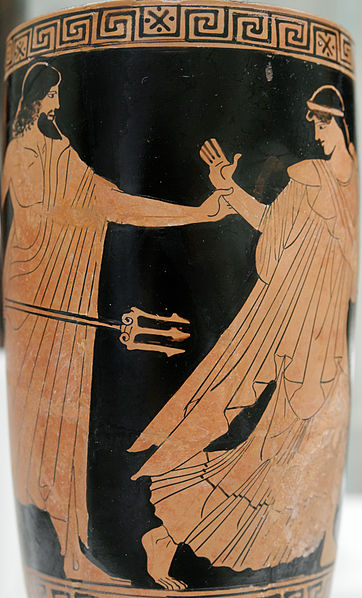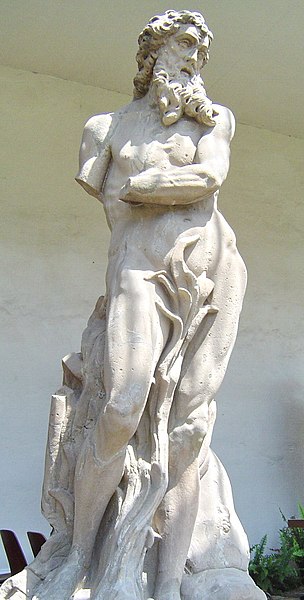Athens is one of the oldest named cities in the world, having been continuously inhabited for perhaps 5,000 years. Situated in southern Europe, Athens became the leading city of Ancient Greece in the first millennium BC, and its cultural achievements during the 5th century BC laid the foundations of Western civilization.
Painting of an idealized reconstruction of the Acropolis and Areios Pagos in Athens, by Leo von Klenze (1846)
The contest of Athena and Poseidon, West Pediment of the Parthenon
The ruins of the Temple of Olympian Zeus, conceived by the sons of Peisistratus
Roman statuette of Athena, copy of the Phidias statue, created for the Parthenon in 447 BC, National Archaeological Museum, Athens
Poseidon is one of the Twelve Olympians in ancient Greek religion and mythology, presiding over the sea, storms, earthquakes and horses. He was the protector of seafarers and the guardian of many Hellenic cities and colonies. In pre-Olympian Bronze Age Greece, Poseidon was venerated as a chief deity at Pylos and Thebes, with the cult title "earth shaker"; in the myths of isolated Arcadia, he is related to Demeter and Persephone and was venerated as a horse, and as a god of the waters. Poseidon maintained both associations among most Greeks: he was regarded as the tamer or father of horses, who, with a strike of his trident, created springs. His Roman equivalent is Neptune.
The Poseidon of Melos, a statue of Poseidon found in Milos in 1877
Poseidon greeting Theseus (on the right). Detail, Attic red-figured calyx-krater by Syriscos Painter, 450-500BC from Agrigento. BnF Museum (Cabinet des médailles), Paris
Poseidon pursuing a woman, probably by Achilleus painter, 480-450BC. Metropolitan Museum of Art, Manhattan NY
Statue of Poseidon in Germany by Johann David Räntz and Lorenz Wilhelm Räntz (1760).








